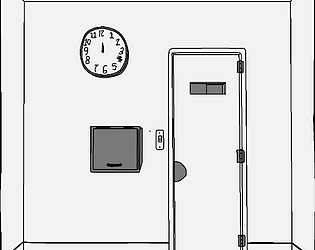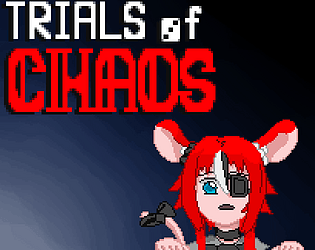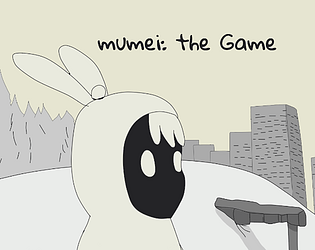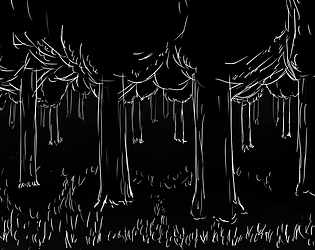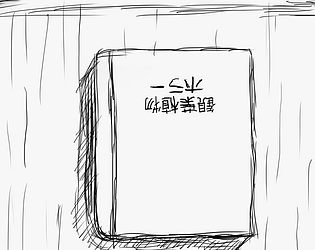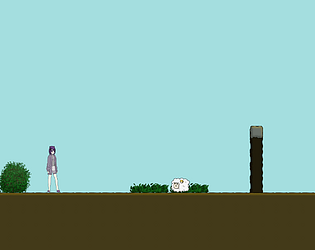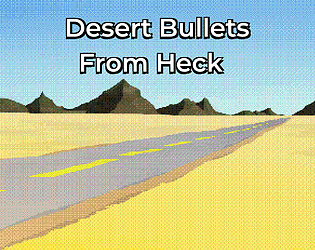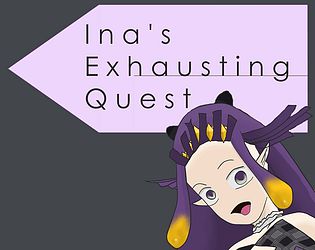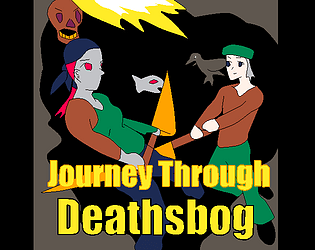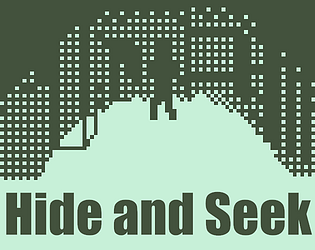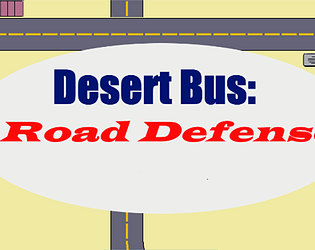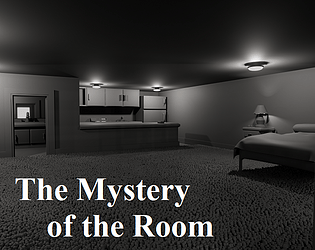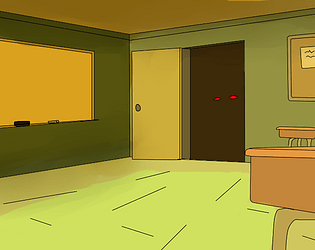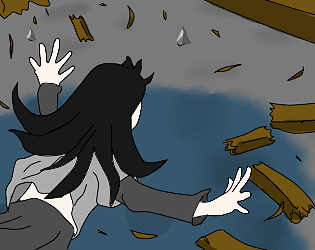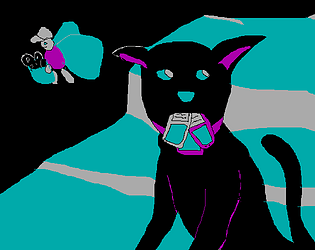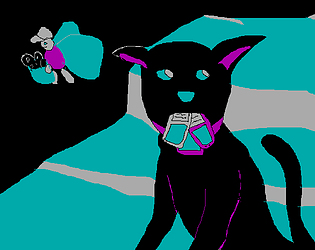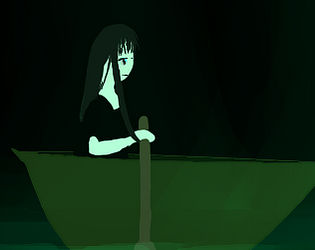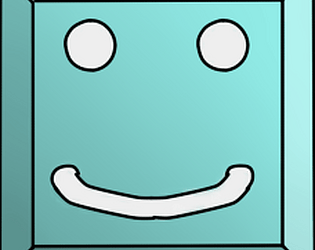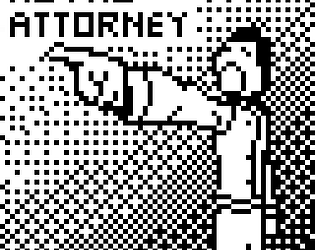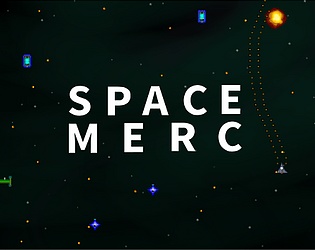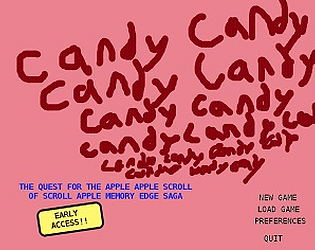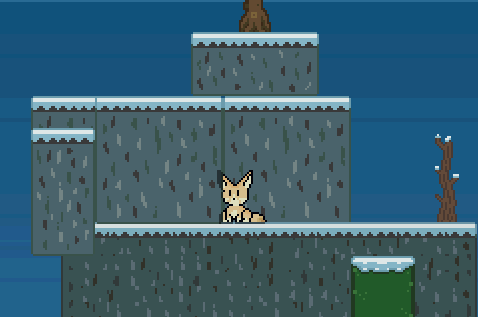Thanks for playing/reading. I'm glad you had enough time despite all the fan work you do.
Colin EUMP
Creator of
Recent community posts
Great job getting this much in. Looking at Antimuffin's comment, I'm curious if starting the actual challenges requires reading the note on the seat. If not, that'd be almost a softlock. Similarly, I didn't see any indication that the game require audio to finish, nor did I see any in-game visual matching what the audio was doing. I'm not sure how someone who's not in a good position to listen to the audio would be able to finish the game.
Besides that, I noticed that I was able to go below the bottom of the screen, but doing so caused the driver to be unable to get back up.
On the subject of getting better at coming up with gameplay, I would recommend considering, once you know who and what the player is going to be playing as, trying to consider how that person or thing would view its own movement. Just given how they move, I don't think actual flies feel the physics of their own bodies much. As such, I would've recommended much higher acceleration with a straight cap on movement speed, so that the feeling of inertia is nearly non-existent.
Good work. It's more on the casual side for my personal tastes, but that's just cause I play way too many of these sort of games. The levels have a nice sense of flow, and I liked the secret path.
That said, I noticed the pixel platformer pack is CC0, meaning it is allowed to edit the contents when using them in your own games. The reason I mention that is the cactus didn't look dangerous to me, so I thought it was part of the background at first. I think making the border some shade of red would've helped.
I think this is a fairly good tower defense prototype. My biggest complaint would be the lack of narrative flavor. That said, I'm not really sure what half the towers are actually doing. More pressingly, the base kept lose hp for no discernible reason during my run. I still got to 12 storms, but I couldn't figure out what was damaging the base. The creatures never got close.
Other than that, I think the choice of red on blue for the text to upgrade towers was a poor choice. I get that the red is indicate loss of gold while the green is to indicate an increase, but really it just made the cost hard to read.
The options menu is a curious addition. The key config is completely indecipherable, while the listing of a "windowed" mode is something I wouldn't expect from a game I can't download.
Regarding the enemies, my plan was to have the slimes be hard at first then stop being hard once the player got some more die faces with higher damage. That's part of why the chest early on has a really good die face in it. Unfortunately I had to keep reusing the same enemies with more health because of running out of time before I could finish coding the other ones.
I am currently working on a windows port for people who aren't comfortable using emulators. Other than that I'll wait to see how many people actually play the game before deciding on whether to make more versions.
Oh, and thanks for playing.
To clarify, the part that I have trouble believing is that a hearing device would be needed to hear that sound. If you think it's worth the trouble to change, I would recommend just changing which sound the main character needs to listen for. The use of a glass is fine, as that is actually something that spies used to do in real life.
I entered the solution to the access panel puzzle as shown in the walkthrough and nothing happened.
Besides that, I don't get why the fire alarm in the room would need amplifying to hear it. Those tend to be pretty loud, and if the doors and walls are thick enough to block the sound, then they'd be thick enough to prevent the glass method from working.
If you feel like improving this at all, the first thing I would suggest is to have the obstacles disappear at a negative x position equal to the width of the image. The second thing I would suggest is to not use purely random positioning for the obstacles. As things are at the moment, the game is more luck than skill, specifically luck in how vertical or horizontal the arrangements of obstacles end up being.
I tried mashing buttons to follow the intended usage as described on the game page. The engine ran out of sprites, resulting in an error screen. Specifically, it says "output_sprites vector is full. can't hold more sprites." Specifically that seems to happen whenever mashing buttons while holding the 7th chord button.
On the concept itself, I think this might be down to differing musical tastes or different expectations on who would use such a device. However, I think the idea of giving musical inspiration and the idea of restricting to only what will basically sound good are conflicting ideas. I've seen it elsewhere too, though, so your tastes might be more popular in the hobbyist game dev sphere. (also my liking of the locrian mode and modes in general may be an indication of what sort of musician I am)
The idea isn't bad, but I think the use of disparate timing mechanisms hurts this game. The timed blocks, and movement platforms have a lot of interactions where I can figure out what the result will be, but I'm left confused as to why. Adding in that gravity has its own time variable then just makes the whole endeavor feel arbitrary. I also think the puzzle design is sometimes a little too reliant on making the player travel to find an offset, especially in places where screwing up the first time means backtracking around the whole puzzle area.
Just to clarify, the reason I would expect pegging the player to set locations to help is because it would allow all movement to use the same transition you currently have for turning. It actually don't think it would help with navigation. I always had an easier time with Doom back in the day, even just using arrow keys, than trying to navigate some of the more same-y areas in Myst (eg. the forest world).
The tutorial says to jump at the next beat if there's a ground obstacle, but in practice that doesn't seem to be the correct timing most of the time. Worse, trying to jump over ground obstacles is throwing me off the beat.
Also, what's the point of telling the player to not use keyboard? I don't see why that would matter, and also if the player is using an emulator on PC, then there's no guarantee they own a gamepad.
"Please bear in mind that the target for this game is the Game Boy Advance and 386 DOS machines, so please judge the graphics and UI/UX accordingly (my custom engine is not up to spec to a Unity or Unreal, of course!). "
This statement has me wondering why you chose those platforms. I get that some of the chips that used the 80386 instruction set had a comparable speed to the GBA, but in all other respects I'm aware of, they're not even close. That even includes what type of processor is being used, since 80386 is x86 while the GBA's processor is ARM. It's hard to even compare the video capabilities, since I'm pretty sure the use of 386 processors wasn't aligned with the use of any particular video standard. Just looking, I can't tell if this is using CGA, EGA, VGA, or one of the lesser known ones.
Also, in case you're not aware, both Doom and Duke Nukem 3d got GBA-ports, so that's what the graphics and UI/UX standards for comparison would be.
Having tried both versions, I'm unsure why you allow free movement rather than something more like Myst or 7th Guest.


